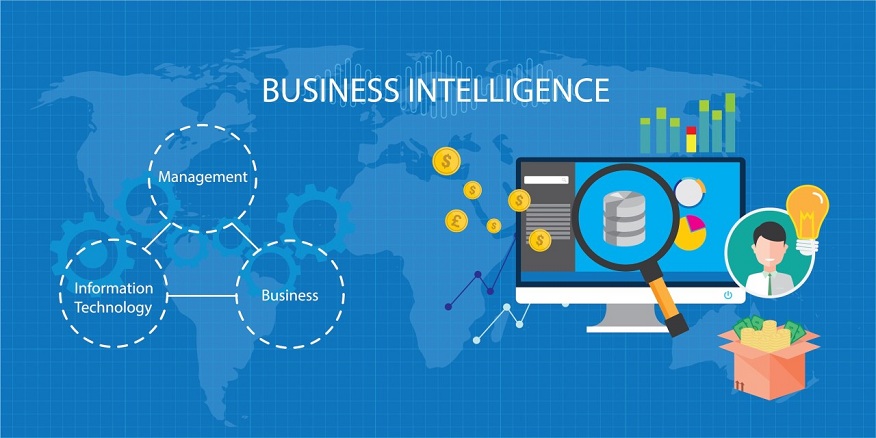Empowering Enterprises: The Rise of Self-Service Business Intelligence in the USA
In the fast-paced world of business, the ability to make informed decisions swiftly is a critical factor for success. Traditional approaches to business intelligence often involve complex processes and reliance on IT departments, resulting in delays and inefficiencies. Enter self service business intelligence (SSBI), a revolutionary paradigm that empowers users to extract valuable insights without extensive technical expertise. In the United States, SSBI has gained substantial traction, transforming the way organizations harness data for strategic decision-making.
Understanding Self-Service Business Intelligence
Self-service business intelligence refers to the practice of allowing business users to access and analyze data independently, without the need for constant IT support. This approach democratizes data analytics, enabling individuals across different departments to explore, visualize, and interpret data to derive actionable insights. SSBI tools are designed to be user-friendly, making it possible for non-technical users to generate reports, dashboards, and perform advanced analytics with minimal training.
The Benefits of Self-Service Business Intelligence
Empowering Non-Technical Users
SSBI platforms are tailored to the needs of non-technical users, breaking down the barriers that traditionally existed between data and decision-makers. This empowerment fosters a data-driven culture within organizations, allowing employees at all levels to contribute meaningfully to the decision-making process.
Faster Decision-Making
By eliminating the dependency on IT for every data request, SSBI accelerates the decision-making process. Users can access real-time data, create their reports, and respond swiftly to emerging opportunities or challenges. This agility is crucial in the dynamic business landscape of the 21st century.
Cost Savings
Reducing reliance on IT resources for data analysis not only speeds up processes but also leads to cost savings. Organizations can allocate IT resources more efficiently, focusing on high-impact projects rather than routine data retrieval tasks.
Self-Service Business Intelligence in the USA
Adoption Trends
The United States has been at the forefront of adopting self-service business intelligence solutions. Companies across various industries are recognizing the value of empowering their employees with tools that allow for independent data exploration. From startups to large enterprises, the demand for SSBI has been steadily increasing.
Industry-Specific Applications
Different industries in the USA are leveraging SSBI in unique ways to gain a competitive edge. In finance, for example, SSBI tools enable quick and accurate financial analysis, risk assessment, and compliance reporting. In healthcare, organizations utilize SSBI to enhance patient care through data-driven insights, while in retail, it aids in optimizing inventory and improving customer experience.
Integration with Cloud Technologies
The integration of self-service business intelligence with cloud technologies has been a game-changer in the USA. Cloud-based SSBI solutions offer scalability, flexibility, and accessibility, allowing users to access data and insights from anywhere, at any time. This has become especially crucial in the era of remote work and distributed teams.
User-Friendly Platforms
The success of SSBI in the USA can be attributed to the user-friendly nature of the platforms available. Leading SSBI tools offer intuitive interfaces, drag-and-drop functionality, and interactive visualization capabilities, making it easy for users with varying levels of technical expertise to harness the power of data.
Challenges and Considerations
Data Governance and Security
While SSBI empowers users, it also raises concerns about data governance and security. Organizations must strike a balance between providing autonomy to users and ensuring that sensitive data is handled responsibly. Robust security measures and clear governance policies are essential to mitigate risks.
Training and Adoption
Despite the user-friendly nature of SSBI tools, organizations need to invest in training programs to ensure that users can leverage these tools effectively. Resistance to change and lack of awareness can hinder the successful adoption of self-service business intelligence.
Data Quality and Integration
The accuracy and reliability of insights generated through SSBI depend on the quality of the underlying data. Ensuring data quality and seamless integration with various data sources are ongoing challenges that organizations must address to maximize the benefits of SSBI.
Future Trends in Self-Service Business Intelligence
Artificial Intelligence and Machine Learning Integration
The future of SSBI in the USA will likely involve deeper integration with artificial intelligence (AI) and machine learning (ML) capabilities. Advanced analytics, predictive modeling, and automated insights generation will become standard features, further enhancing the value of self-service business intelligence.
Natural Language Processing
The integration of natural language processing (NLP) will make SSBI even more accessible. Users will be able to interact with data using natural language queries, making it easier for individuals without a background in data analytics to extract meaningful insights.
Augmented Analytics
Augmented analytics, which combines human intelligence with machine intelligence, will play a significant role in the evolution of SSBI. These tools will provide automated insights, recommendations, and contextual information, empowering users to make more informed decisions.
Collaborative Data Exploration
The future of self service business intelligence in USA is likely to emphasize collaborative data exploration. SSBI tools will enable teams to work together seamlessly, fostering a culture of collaboration and knowledge sharing. Features such as real-time collaboration on dashboards, shared datasets, and collaborative annotations will enhance teamwork and collective decision-making.
Mobile Accessibility
Mobile accessibility is becoming increasingly important in the business world. The next wave of SSBI will prioritize mobile-friendly interfaces, allowing users to access critical data and insights on the go. This is particularly relevant in a landscape where remote work and mobile productivity are becoming integral aspects of business operations.
Customization and Personalization
As self-service business intelligence continues to evolve, customization and personalization will take center stage. Users will have the ability to tailor dashboards and reports to suit their specific needs and preferences. This level of personalization enhances user engagement and ensures that individuals can focus on the specific metrics and KPIs relevant to their roles.
Integration with Business Workflows
Future SSBI solutions will seamlessly integrate with existing business workflows. This integration will allow organizations to embed analytics directly into operational processes, creating a more cohesive and streamlined approach to decision-making. The synergy between SSBI tools and day-to-day workflows will drive efficiency and enhance the overall business ecosystem.
Continuous Learning and Improvement
SSBI tools of the future will feature continuous learning capabilities. Through feedback loops and user interactions, these tools will adapt and improve over time, providing more accurate insights and recommendations. This iterative learning process will contribute to the ongoing refinement and optimization of self-service business intelligence platforms.
Conclusion
Self-service business intelligence has emerged as a transformative force in the business landscape of the United States. By empowering non-technical users, accelerating decision-making processes, and promoting a data-driven culture, SSBI has become a cornerstone for organizations aiming to thrive in a competitive environment. As technology continues to evolve, the future of self-service business intelligence holds even more promise, with advanced analytics, AI integration, and user-friendly innovations poised to reshape the way businesses leverage their data for strategic advantage.

